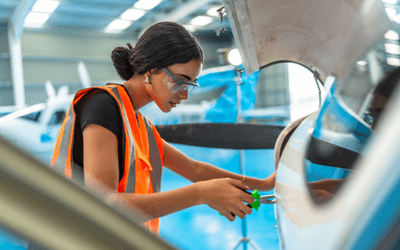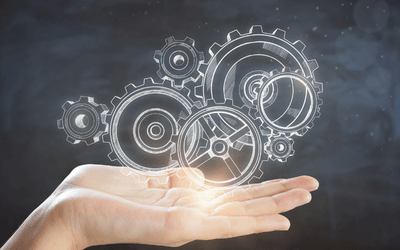The idea behind artificial intelligence (AI) and automation is that machines are used to perform tasks that would normally require a human being. AI is already beginning to change the way buildings are designed and built, as well as the completion of repetitive site work jobs such as bricklaying. A recent study by the Midwest Economic Policy Institute (MEPI) estimates that by 2057, robots could replace or displace 2.7 million jobs in construction and engineering.
Below are some advantages and disadvantages of how AI could affect the construction and engineering industry.
Advantages
Reduce the risk of accidents in the workplace
Since construction and engineering can be a dangerous industry, some of the riskiest jobs can be replaced by robots. When programmed correctly, they can be designed to learn from interactions within it's surroundings and operate in dangerous environments, resulting in less work-related injuries. Although automation was originally used to increase productivity on construction sites, it’s beginning to prove that the workplace can also be made safer through AI.
Not affected by hostile environments
Intelligent robots have the ability to complete dangerous construction tasks. These may include lifting heavy equipment, digging fuels that could otherwise be hostile for humans, space exploration and enduring problems that could injure or kill humans. Robots can never refuse to do a task, or be distracted by colleagues in the workplace.
Can replace tiresome tasks
Repetitive, tedious or dangerous jobs can be completed by machine intelligence. They are stronger and faster than humans and can work on tasks 24/7 without getting tired or bored. The human brain can become tired and less focused if worked continuously for too long, increasing the risk of accidents in the workplace. Robots will never get tired of what they are programmed to do, and can be used where human safety is a concern.
Don’t need to take breaks
Robots do not require lunch breaks, holidays, sick days or wages. They can be set to work on a repetitive cycle, unless programmed otherwise. As long as the machine is maintained and programmed correctly, it can work without stopping. This helps businesses to achieve tight deadlines with 24/7 production, letting operators do the more skilled tasks which require a lot of fitness and experience.
Disadvantages
Can be very expensive
Maintaining a robot can be extremely expensive as they are very complex machines which require huge costs to repair and maintain. They have software programmes that need frequent upgrading to be able to achieve the needs of the constantly changing environment. It is not an easy or cheap task to get a machine to do your job. Therefore, only organisations which can afford them will be able to invest.
Not able to work outside of what they are programmed to do
Robots can only do the work that they are programmed to do. They are not able to act any differently outside of the programming which is stored in their internal circuits and firmware. When it comes to creativity, nothing can beat a human mind. A computer can’t think differently while drawing, building or completing a task on a construction site. A machine can’t think ‘outside the box’ whereas thousands of new thoughts and ideas comes into a human mind every day.
Unemployment may rise
Experts are debating the impact AI can have on the job market and whether it’s something we should welcome or fear. Even with computing technologies constantly improving and industrial robots becoming more advanced, jobs may be destroyed faster than they’re created. It’s estimated by MIT economist Erik Brynjolfsson that the vast majority of employment is likely to continue to dramatically drop over the next decade.
Robots do not get better with experience…yet
Unlike humans; AI cannot be improved with experience. Machines may be able to store enormous amounts of data, but the storage, is not as effective as the human brain and with time, can lead to wear and tear. It stores a lot of data but the way it can be accessed and used is very different from human intelligence.
So is AI really a threat? Although we’re potentially facing one of the best or worst things to happen to humanity, there are many advantages and disadvantages of AI. In today’s world, machines have human-like abilities, and AI is rapidly growing and improving all the time. All of us should consider what we can do to improve the chances of reaping the benefits, and avoiding the risks by working with AI and automation to enhance our lives for the best.









